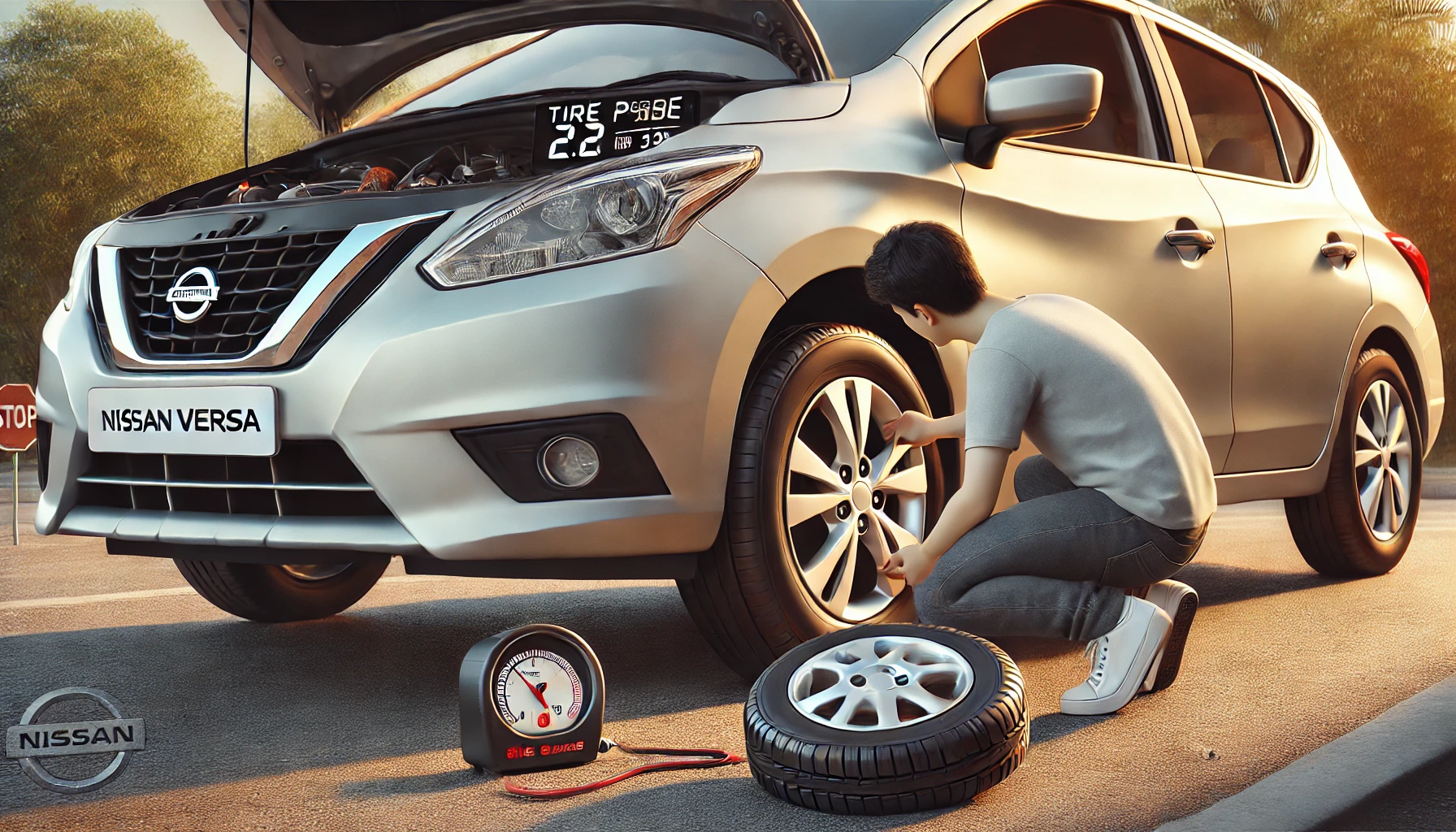
Common Reasons for a Tire Pressure Sensor Fault in Nissan Versa
If your Nissan Versa is showing a tire pressure warning, here are the most likely causes:
1. Low Tire Pressure
The simplest explanation could be that one or more tires have low air pressure. Even a slight drop can trigger the warning, so check all tires and inflate them as needed.
2. Malfunctioning TPMS Sensors
Like with other Nissan models, the TPMS sensors in the Versa can wear out over time, especially after 5-7 years of use. The battery in these sensors may die, or the sensor itself might malfunction.
3. Tire Changes or Rotations
If you’ve recently changed or rotated the tires, the TPMS system might require recalibration. The sensors need to communicate properly with the system after any tire service.
4. Temperature Changes
Sudden shifts in weather, especially colder temperatures, can reduce tire pressure and trigger the TPMS warning. The air in the tires contracts when it’s cold, causing a drop in pressure.
5. Communication Issues Between Sensors and the ECU
Occasionally, the issue lies with the vehicle’s onboard computer not receiving signals from the sensors. This could require a system reset or professional inspection.
How to Fix the Tire Pressure Sensor Warning on Your Nissan Versa
1. Check Tire Pressure
Manually check the tire pressure with a gauge, ensuring all tires (including the spare) are inflated to the recommended PSI (usually around 32 PSI for the Versa). After adjusting, the TPMS light should turn off after driving for a few minutes.
2. Reset the TPMS
In most Nissan Versa models, you can manually reset the TPMS system:
- Turn the ignition to the “ON” position (don’t start the car).
- Press and hold the TPMS reset button (usually under the dashboard) until the light blinks three times.
- Start the vehicle and drive for about 10-20 minutes at a speed of 25-30 mph to allow the sensors to recalibrate.
3. Replace Faulty Sensors
If the reset doesn’t resolve the problem, it may indicate a faulty sensor that needs to be replaced. A professional mechanic can use a diagnostic tool to identify which sensor is faulty.
4. Visit a Mechanic
If none of the above steps work, a visit to a Nissan dealership or certified mechanic is recommended. They can perform a full system check to find any underlying issues.
Tips to Prevent Future TPMS Faults
- Regularly check and maintain tire pressure, especially during extreme weather changes.
- Have the sensors checked during tire rotations and replacements.
- Replace aging TPMS sensors proactively after about 5-7 years to prevent sudden failures.
